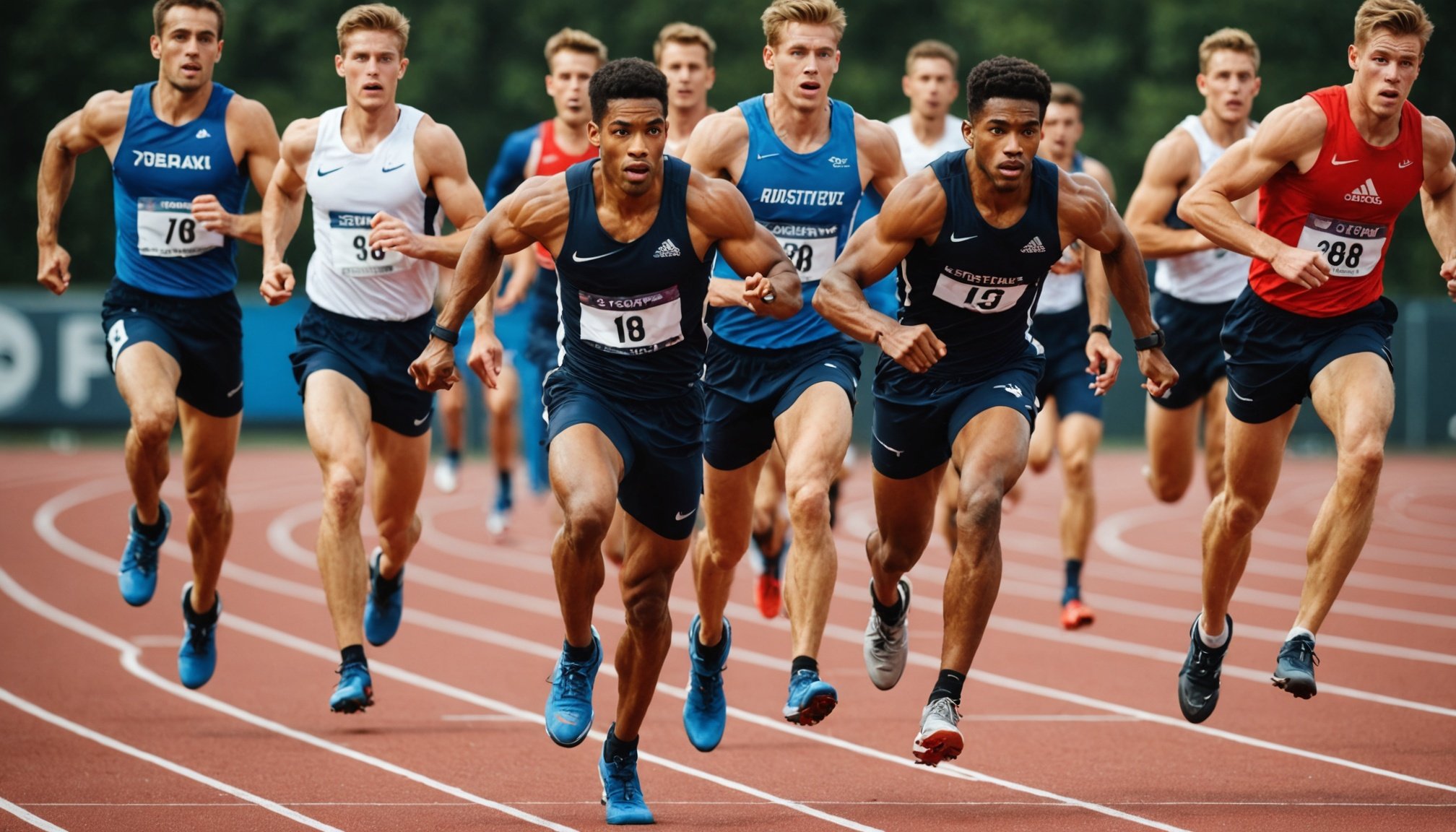In the world of elite sports, physical prowess often takes center stage. However, beneath the surface, the psychological fortitude required to excel is equally crucial. Competing at the highest levels demands not just strength and skill, but a resilient mindset that can withstand pressures, setbacks, and expectations. As spectators, we often marvel at the athletic feats, yet the mental battles athletes face remain largely invisible. Understanding and preparing for these psychological challenges can be the difference between success and stagnation. This article delves into effective strategies athletes can adopt to meet these mental demands head-on.
Understanding the Psychological Demands
Elite athletes navigate a landscape rife with mental challenges, from the relentless pursuit of perfection to the weight of public expectation. Common psychological hurdles include anxiety, burnout, and self-doubt. Each competition, whether it’s the Olympics or a world championship, brings with it a unique set of pressures that demand psychological preparedness.
This might interest you : What strategies can be employed to maintain focus during long-duration sports events?
Anxiety is perhaps the most prevalent challenge at this level. The stakes are high, and the fear of underperforming can be paralyzing. Athletes may experience racing thoughts, elevated heart rates, and a sense of impending doom even before stepping onto the field. Acknowledging and addressing these sensations is the first step in overcoming them.
Burnout, on the other hand, stems from the continuous cycle of training, competition, and recovery. When passion turns into obligation, athletes can become mentally exhausted, leading to diminished focus and enthusiasm. Recognizing the signs early ensures timely intervention.
This might interest you : How can athletes avoid burnout during rigorous training schedules?
Self-doubt is another formidable obstacle. Elite athletes often grapple with whether they are ‘good enough’ despite their tangible successes. The internal critic can be relentless, undermining confidence at crucial moments. Developing strategies to combat this self-doubt is essential for sustained performance.
Building Mental Resilience
Mental resilience is the backbone of an elite athlete’s psychological preparation. The ability to bounce back from adversity, remain focused, and maintain motivation are characteristics of resilient athletes. But how can one cultivate this resilience?
Firstly, embracing a growth mindset is vital. Viewing challenges as opportunities to learn rather than insurmountable obstacles paves the way for personal development. This mindset encourages athletes to see losses as part of the journey, not the end of it.
Visualization techniques also play a crucial role. Athletes often envision their performance, rehearsing it mentally to boost confidence and reduce anxiety. By visualizing the steps to success, they prepare their minds to remain calm and focused under pressure.
Incorporating mindfulness and meditation into daily routines can significantly enhance mental resilience. These practices encourage athletes to stay present, reducing stress and enhancing concentration. Mindfulness teaches them to observe thoughts and feelings without judgment, fostering a balanced mental state.
Finally, setting realistic goals and establishing a support network is paramount. Goals act as guiding stars, keeping athletes aligned with their aspirations, while a supportive circle of coaches, family, and teammates provides the encouragement needed to persevere.
The Role of Mental Health Professionals
The journey to elite competition is not one an athlete must undertake alone. In recent years, the role of mental health professionals in sports has become increasingly prominent. These experts offer valuable insights and techniques to help athletes navigate the psychological complexities of competition.
Sports psychologists are instrumental in creating personalized mental training programs that address each athlete’s unique challenges. They guide athletes in developing strategies to manage stress, enhance concentration, and improve mental toughness. By offering a safe space for athletes to express concerns and fears, psychologists help dismantle the stigma surrounding mental health in sports.
Moreover, counselors and therapists play a critical role in recognizing and treating mental health issues such as depression and anxiety, which can severely impact performance if left unaddressed. Their support enables athletes to build healthier relationships with their sport and themselves.
Integrating mental health services into an athlete’s training regimen is not a sign of weakness, but of strength. It acknowledges the multifaceted nature of peak performance and recognizes that mental and physical health are intertwined components of an athlete’s overall well-being.
Integrating Psychological Training into Daily Routines
For psychological preparation to be effective, it must be seamlessly integrated into an athlete’s daily routine. Just as physical workouts are non-negotiable, mental exercises should hold the same priority.
Start by allocating specific times for mental training sessions, such as visualization or meditation practices. These sessions should be as regular as any physical training, ensuring consistent reinforcement of mental skills.
Furthermore, journaling can be a powerful tool for athletes to articulate their thoughts, track their progress, and identify patterns or triggers that affect performance. Writing encourages self-reflection, enabling athletes to gain insights into their mental processes and adjust strategies accordingly.
Routine debriefs after training and competitions offer athletes the opportunity to reflect on what went well and what could be improved. These discussions should be candid, focusing on both successes and areas for growth, fostering an environment of continuous learning.
Lastly, maintaining a balanced life beyond sports is crucial. Pursuing hobbies, nurturing relationships, and ensuring adequate rest and recovery are essential components that support mental health and readiness. A well-rounded life enhances overall well-being, which in turn supports peak performance on the field.
In the pursuit of athletic excellence, preparing for the psychological challenges of elite competition is as important as physical training. Through understanding psychological demands, building mental resilience, seeking support from mental health professionals, and integrating psychological training into daily routines, athletes can equip themselves to face the pressures of elite sports. As the sports world evolves, recognizing and prioritizing mental readiness is no longer optional but imperative for success. By embracing these strategies, athletes can not only enhance their performance but also enjoy a fulfilling and sustainable career in their sport.











